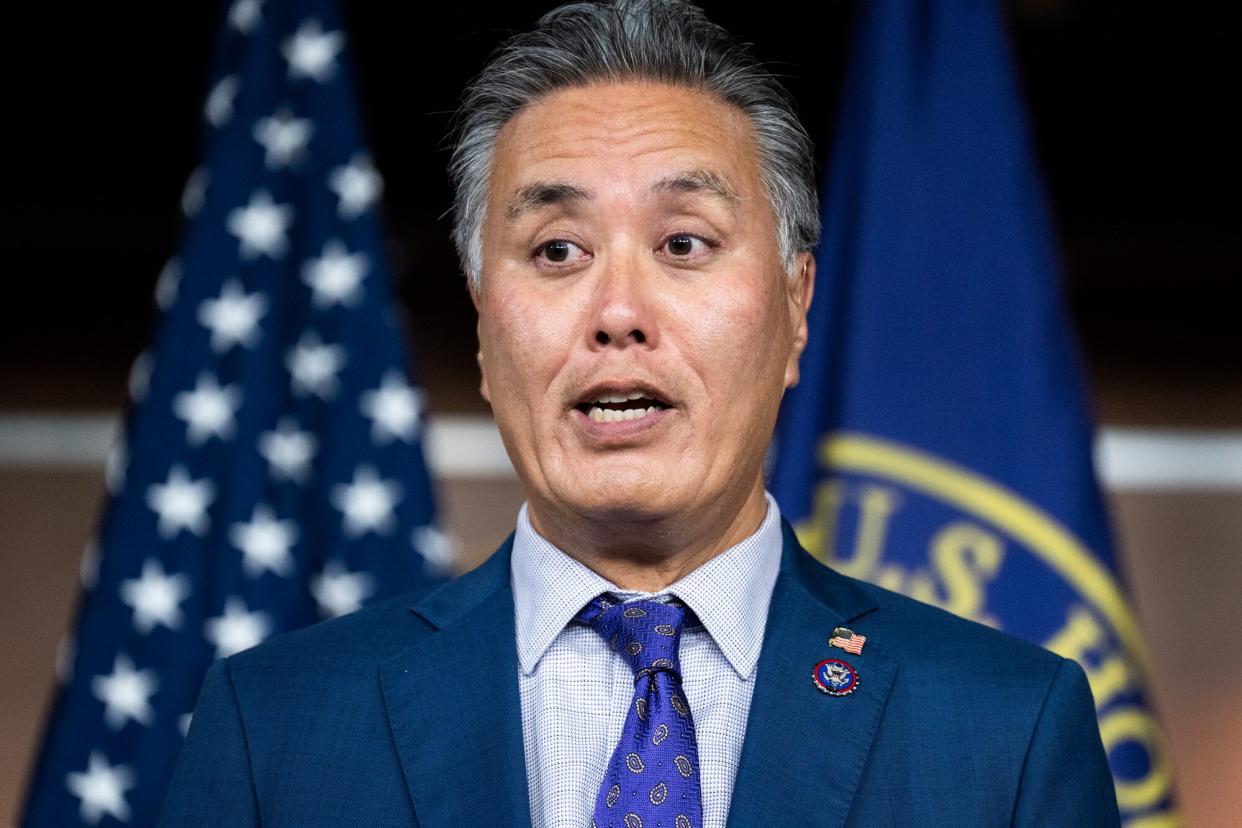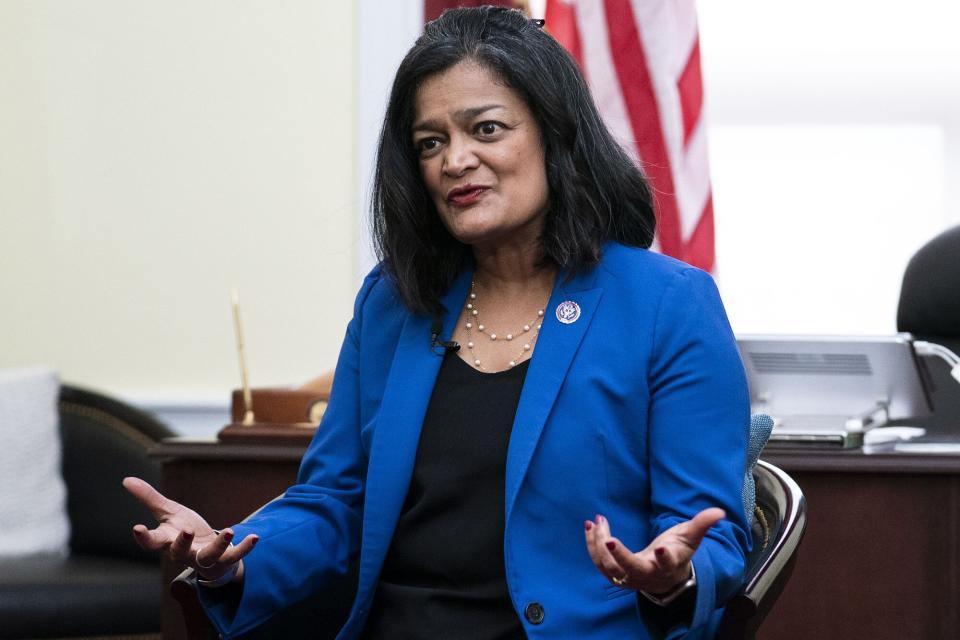Four-Day Workweeks Could Be Coming to the U.S. — Here's How

- Oops!Something went wrong.Please try again later.
Tom Williams/CQ-Roll Call, Inc via Getty
California Rep. Mark Takano has reintroduced a bill that aims to trim back the traditional 40-hour workweek, after dozens of companies in the United Kingdom have already jumped on board and reported positive results, according to The Washington Post.
Last June, the world's biggest trial of the four-day workweek launched in Britain, where over 3,300 workers from 70 companies worked fewer hours for 100% of their pay and maintained the same level of productivity. According to the Post, over 90 percent of U.K. companies said they wouldn't go back to the old model.
Per Takano's March 1 statement, the bill has been endorsed by the American Federation of Labor and Congress of Industrial Organizations (AFL-CIO), 4 Day Week Global, Service Employees International Union and the United Food and Commercial Workers Union.
"Workers across the nation are collectively reimagining their relationship to labor – and our laws need to follow suit," said Takano, a Democrat who made history as the first openly gay person of color elected to Congress and strives to continue making changes.
"We have before us the opportunity to make common sense changes to work standards passed down from a different era," he said. "The Thirty-Two Hour Workweek Act would improve the quality of life of workers, meeting the demand for a more truncated workweek that allows room to live, play, and enjoy life more fully outside of work."
RELATED: PEOPLE's 100 Companies that Care 2022: Meet the Employers Putting Their Communities First
The data is in & the time is now to modernize work culture for the better. I'm reintroducing the 32-Hour Workweek Act to allow workers to begin reclaiming their time, and their lives, with no loss of pay. pic.twitter.com/rt7SoAeylD
— Mark Takano (@RepMarkTakano) March 1, 2023
Washington state Rep. Pramila Jayapal, an original co-sponsor on the bill, gave her own statement on March 1 regarding the matter, saying workers' well-being should be given priority over corporate profits.
"For too long, our country has prioritized corporate profits over working people and Americans have been forced to work longer hours, sacrificing time with loved ones," she said, continuing:
"While policies enacted by President Biden and Democrats have finally started to raise wages for workers across multiple industries, it's vital that health, well-being, and basic human dignity are valued over employers' bottom lines. Establishing a 32-hour work week would go a long way toward finally righting that balance."

Sarah Silbiger/Bloomberg via Getty
RELATED: New Mom Wins $255K Settlement After Being Denied Reduced Hours to Pick Up Her Child from Daycare
The press release noted that the majority of workers would be "non-exempt, hourly workers," but "some salaried workers fall under the scope of the bill's provisions."
The proposed shift would primarily promote a healthier work-life balance, arguing that "healthcare, education, and childcare are all affected by the number of hours employees spend at work."
"On average, U.S. workers work 200 hours more per year than workers in other developed countries," Takano's proposal noted. "The COVID-19 pandemic transformed the conversation around the future of work. It is time the United States equally prioritize quality of life and productivity."
Never miss a story — sign up for PEOPLE's free daily newsletter to stay up-to-date on the best of what PEOPLE has to offer, from juicy celebrity news to compelling human interest stories.
Per CNBC, Takano first introduced the bill to Congress in 2021. Though it was endorsed by the Congressional Progressive Caucus and gained speed on the internet, it failed to advance any further.
In 2021, Takano told Reuters: "This is not an insincere, cavalier thing we've done. It is a sense on my part that wide swaths of the American workforce are worn out and tired, and the pandemic has made them be more real about their lives after seeing someone die or be at risk of dying. People are seeing that time is just as important as money."
Takano said on March 1 that he's passionate about the 32-hour workweek to bring about "a significant change which will increase the happiness of humankind."

